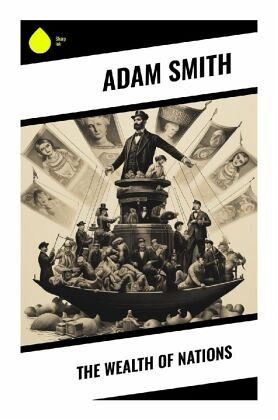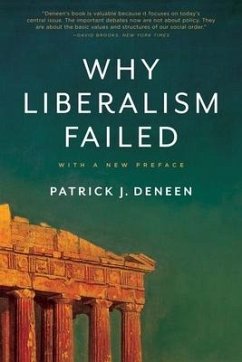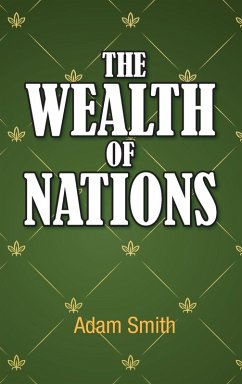
The Wealth of Nations
Versandkostenfrei!
Versandfertig in 6-10 Tagen
25,00 €
inkl. MwSt.

PAYBACK Punkte
0 °P sammeln!
In "The Wealth of Nations," Adam Smith lays the groundwork for modern economic theory through a thorough exploration of the nature of commerce, trade, and wealth distribution. Smith's literary style is characterized by a systematic and analytical approach, employing clear prose and compelling arguments that enhance the rigor of his discourse. Written in the context of the burgeoning Industrial Revolution, the text critiques mercantilism while championing free markets and the division of labor, thereby influencing not only economics but also political philosophy and social thought. Adam Smith, ...
In "The Wealth of Nations," Adam Smith lays the groundwork for modern economic theory through a thorough exploration of the nature of commerce, trade, and wealth distribution. Smith's literary style is characterized by a systematic and analytical approach, employing clear prose and compelling arguments that enhance the rigor of his discourse. Written in the context of the burgeoning Industrial Revolution, the text critiques mercantilism while championing free markets and the division of labor, thereby influencing not only economics but also political philosophy and social thought. Adam Smith, a key figure of the Scottish Enlightenment, was profoundly shaped by the intellectual environment of 18th-century Scotland, where inquiry and individualism flourished. His experience as a moral philosopher and his study of human behavior informed his economic theories, integrating ethical considerations with the mechanics of trade. Smith's fascination with human motives and social organization is intricately woven throughout the text, reflecting his belief that economics cannot be divorced from the moral framework of society. This seminal work is essential for readers seeking to comprehend the foundations of economic thought and policy. Smith's insights remain profoundly relevant, urging readers to consider the impact of individual actions on the collective economy. Whether one is a student of economics, history, or philosophy, "The Wealth of Nations" remains a pivotal reading that invites reflection on the principles governing wealth and social progress.












